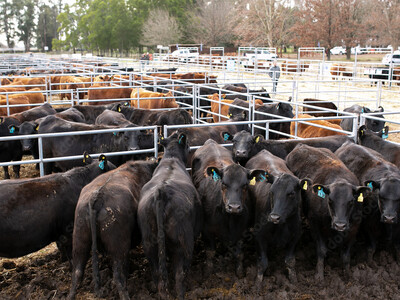Reser's Recall & Keeping Canning Safe
Reser's Recall & Keeping Canning Safe plus Food Forethought. I'm Greg Martin with today's Northwest Report.Reser's Fine Foods of Beaverton, Oregon is voluntarily expanding its October 22 recall of refrigerated ready-to-eat products because they may be contaminated with Listeria monocytogenes. The recalled products were manufactured at the Topeka, KS salad manufacturing facility. No other Reser's Fine Foods, Inc. manufacturing facilities are involved in this recall. There are no confirmed illnesses associated with these products. Consumers who purchased the product may take it back to the store for a refund or discard it.
Speaking of tainted foods, the wife and I recently put up a few jars of concord grape jam from our own grapes. It was our first time canning and we were concerned about the safety. Jeanne Brandt of Oregon State Extension talks about safely canning tomatoes.
BRANDT: Start with good produce and then get current tested instructions and make rue they're from a reliable source. There's a lot of information out there, a lot of web sites, some great looking YouTube videos that have some very questionable practices in them and we want people to stay safe. Tomatoes are a greater risk than a lot of people assume so all safe canning instructions the addition of acid. Add lemon juice or citric acid.
Now with today's Food Forethought, here's Lacy Gray.
According to a recent New York Times article evidence is mounting that one of Obamacare's loftiest goals - to encourage insurer competition in order to keep insurance costs low - is falling far short for many trying to enlist in the program, especially for those living rural areas. The Times reports this is due largely in part to the fact that rural areas have far less insurance carriers participating in the online Obamacare insurance exchanges, making the competition factor for driving down premium costs a moot point. According to the Times analysis of county-level data provided by the Department of Health and Human Services, of the nearly 2,500 counties served by the federal exchanges 58% have plans offered by just one or two insurance carriers, and in roughly 530 of those counties only a single insurer is participating. Many urbanites opinions on this lean towards "so the prices of insurance are more expensive in rural areas than urban areas - at least now uninsured people will get insurance." But if they went without insurance because they couldn't afford it, how will making high cost insurance mandatory help their plight? Eight percent less of a near poverty level income can mean the difference between going to bed hungry or not.
Thanks Lacy. That's today's Northwest Report. I'm Greg Martin on the Ag Information Network.














